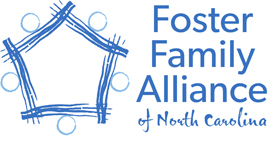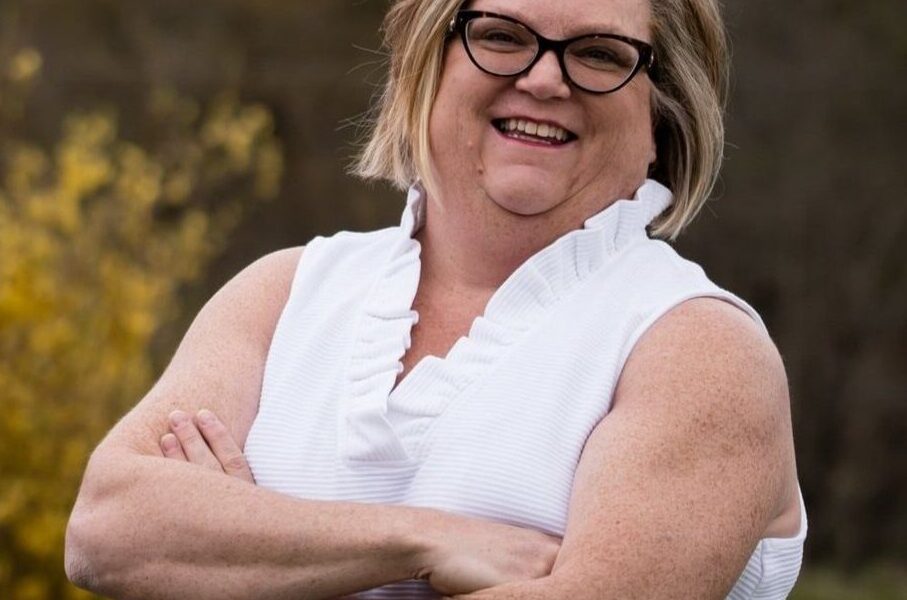by Gaile Osborne -FFA-NC Executive Director
What an amazing time to be working for the Foster Family Alliance of North Carolina! It’s an honor and pleasure to be able to represent resource parents in different capacities across the state. There’s so much excellent work going on all over NC! We have been participating in Youth Input Sessions across the 7 regions of the state. The sessions are attended by youth (ages 14-21), caregivers, and social workers. We are receiving valuable feedback on LINKS, services, resources, and the good and bad experiences of being a youth in the child welfare system. We are grateful for this opportunity to listen and learn.
Training is always in high demand! Foster Family Alliance of North Carolina is passionate about bringing training that directly impacts caregivers. We have been focusing on topics such as trauma, sex trafficking, IEP/504 support for children in care and, much, much more. Visit our website to see the resources we offer.
May 6, 2023 was our most recent Teaming with Teens event. The topic this quarter was “Substance Misuse.” At this session we had many great presenters share information about identifying youth who may be misusing substances, resources, how to effectively support a youth with a substance use disorder, and more! Keep your eyes open for information about our next event happening in the 3rd quarter of 2023.
May is National Foster Care Month. Since 1988, the U.S. government has issued annual proclamations in recognition of National Foster Care Month to show appreciation and gratitude to foster parents across the nation. Foster Family Alliance of North Carolina joins this celebration in thanking you for all you do for the children and families you serve. We recognize the amazing effort and life changing work you are doing daily. Thank you for your dedication and determination.
North Carolina currently has over 5,500 licensed foster homes. However, the reality is that just two years ago, North Carolina had just over 7,000 licensed foster homes. As a state, we are in a position where we need more homes on a daily basis. Currently, around 28% of youth in custody are in relative placements. With more than 10,000 children in custody, we are in dire need of foster homes. The number one recruitment tool is YOU! It’s the conversations and interactions that you have on a daily basis with your co-workers, your church families, neighbors, and friends. It’s the intimate one-on-one conversations that lead to more families signing up to foster. If every family who fosters would recruit one more family, North Carolina would be able to have enough families to serve the children in need.
Some of the biggest needs for our licensed homes include clothing, diapers, equipment, and formula. We have written a grant sponsored by Dogwood Health and opened a clothing closet for foster and kinship providers in western North Carolina called The Giving Tree of WNC. Immediately, it became clear we had a need for more services like this. Foster Family Alliance then opened another clothing closet and started financially supplementing five others with more planned for the near future. We are thankful for our partners who have helped make this happen.
Advocating is at the heart of who I am. Systemic change is truly one of our biggest priorities and our biggest desire at FFA-NC. We cannot accomplish this without you. Many of you participated in the resource parent needs assessment that came out in April. From the assessment, we were able to identify areas of need, conversations began and ultimately, we are foraging for change at the policy level. Daycare overages that foster families are having to pay, length of time to get licensed, timelines in the court process being missed, stipends, training, and much more were identified through the needs assessment. We are diligently working with the NC Department of Health and Human Services to discuss the needs and means to support our families better. We understand that serving you effectively supports your own recruitment efforts. We are honored and personally know the changes needed for resource parents to be successful in their role.
One of the biggest joys I have in being a foster parent is shared parenting. Reaching out and across lines that are uncomfortable, in places you never imagined being, and ultimately loving the parent of a child in your care should be an honor. I find myself trying to figure out ways to creatively engage in shared parenting. Many of you have shared ideas and we want to support you in this part of the journey. Your ideas have included journaling daily events to provide at visits, pictures, life books, jail virtual phone calls, providing transportation, and numerous other ways to allow the birth parents to still participate in their child’s life.The sky is the limit with shared parenting. Thank you for reaching out and walking alongside birth parents.
Serving the children in our homes proves to be a heavy lift at times. The uncertainty, the court processes, and all the other “stuff” seems to overshadow and stress our hearts and minds. As a resource parent for over 12 years, I have often said that the easy part is loving and serving the children in our home. The incredibly stressful and sometimes impossible lift is everything else. At Foster Family Alliance of North Carolina, we don’t have the answers to everything nor can we change the system with one ask, but we can and will walk this journey with you. Whether it be a late night message online or a phone call asking for support, we will listen and guide you through rough waters. We will encourage you, check in with you, and ultimately listen to your celebrations and frustrations. Feel free to find us online at ffa-nc.org, email us, find us on social media.
I sincerely thank each of you for your dedication to the children of North Carolina.

Tips to Strengthen Minds & Uplift Families
- Nurture youth’s well-being early, often, and continuously. Don’t wait for the signs.
- Talk about mental health as needs and strengths rather than problems or issues.
- Recognize what culture has to offer. Incorporate traditions, practices, and community.
- Engage youth. Ask what types of supports they need- including traditional and nontraditional options.
- Champion the well-being of families and caregivers to support youth’s mental health.


